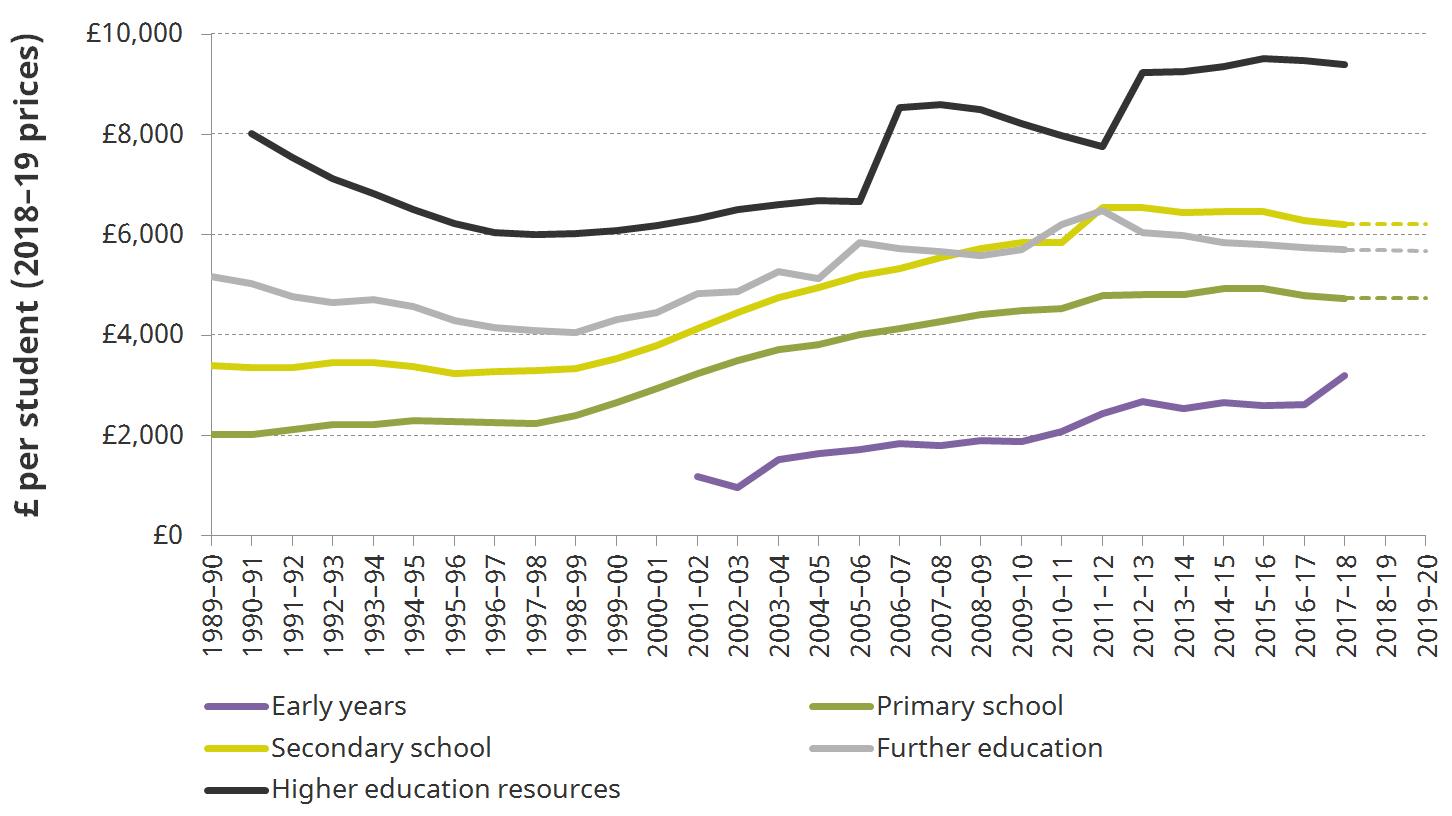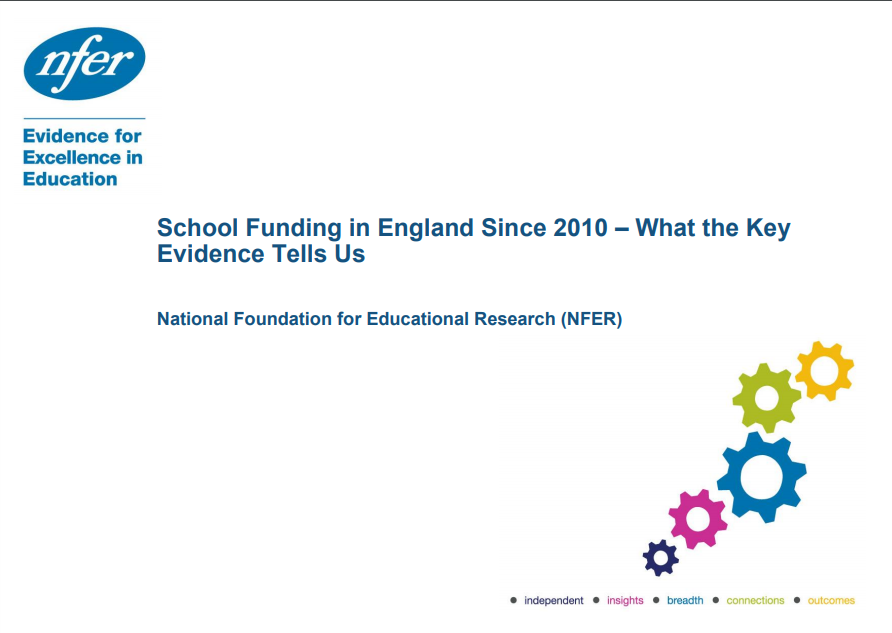The Department for education in England recently championed their record levels of funding on Education. Astute readers of their Facebook feed were able to point out that per-pupil funding was actually falling. The Institute for Fiscal Studies report earlier this year showed per-pupil funding has been cut by 8% in real terms since 2010 – while the DfE’s figures show an extra 537,885 pupils over the same period.
Source Institute for Fiscal Studies
Financial Challenges
The challenges of limited financial resources are not limited to the jurisdictions of the United Kingdom. Bermuda and other small islands and also larger countries face the challenge of doing more with less. In industry, the term coined to address this situation would be efficiency.
It seems that schools need to look at what impacts their core business. What whole school systems can be refined? In my discussions with some international teachers, they are amazed at the bureaucratic aspects of the daily job and the way that hyper-accountability has impacted on a teacher's time to craft great lessons. Too many leaders have come up through a system of accountability that attached great prestige to this aspect of the job. The driving force to this was the high stakes inspection culture. Despite the common sense approach of ' take care of the teaching, and the inspection will take care of its self,' many tried to invest too heavily compiling evidence for a future inspection. An inspection framework with very movable goals.
School Systems That Break Teaching Flow
In a past era of real spending growth on education, it was possible to indulge some of these fanciful approaches. Additional staff could help in the data and accountability harvest. Now that hours have been cut and LSA hours reduced, the unhelpful hyper-accountability has burnt too many professionals out and caused many of them to quit the profession.
It is perhaps not unreasonable for Head Teachers to provide feedback on the real situation in their school so that policymakers can absorb this into policy refinements. Sometimes, this feedback might take quite resolute forms with an unwavering determination. When this happens, it is a chance for engagement and reflection. Head Teachers and schools leaders care about their communities and their passion is often the energy that builds capacity.
Workload Reduction
The UK Government's Workload reduction toolkit offers practical advice and tools for school leaders and teachers to help review and reduce workload. This is aimed at reducing workload and at the same time not dull the impact of the hard-earned progress of educational achievement delivered by schools. The acknowledgement that we face diminishing returns from excessive levels of bureaucracy and workload is pleasing. School leaders must ensure that they create a school culture that protects themselves and teachers and leaves them capable of teaching great lessons and leading great schools.
Creating a space for great teaching and a work-life balance is hopefully more reachable if whole school approaches and systems maximise productivity rather than create remarkable amounts of material for a cursory inspection.
Research has the potential to shape strategic planning. It should lead to more awareness of where budgetary spending has the greatest payback. The reality of a tight fiscal climate is still with us.
"In times of austerity and budget cuts, it’s important to identify where money can do the most good in schools"
"In times of austerity and budget cuts, it’s important to identify where money can do the most good in schools"
National Foundation for Educational Research
Directing Limited Finacial Resources
Schools in England are well funded compared to other Organisation for Economic Co-operation and Development (OECD) countries, headteachers in England still report difficulties with resourcing and staff recruitment. There is a daily feed of news stories about this issue. Also, while funding seems to have little impact on differences in outcomes between countries, it does appear to have an impact on within-country differences in outcomes. E.g Inner city London School and poor coastal areas.
This above assertion is substantiated in NFER’s new literature review School Funding in England Since 2010 – which found that additional resources have a modest but positive impact on attainment at the primary school level.
Doing More with Less in K-12 Education: Cleveland State University
[embedyt] https://www.youtube.com/watch?v=FoidUq1xL7k[/embedyt]
This reform video is American, but it offers some interesting insights.
The Buckeye State in the United Staes has been hit hard by the national recession and faces an estimated $8 billion biennial budget shortfall. This fiscal crisis will have a serious impact on K-12 education as 40 percent of state revenue goes toward public schools. While most Ohio district superintendents and local school boards have accepted the new reality of doing more with less, the fact remains that they have little experience when it comes to handling the level of funding reductions.



